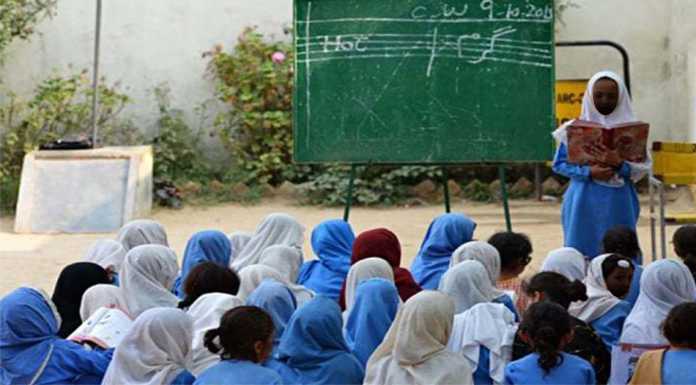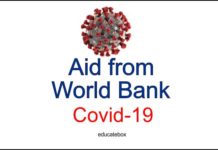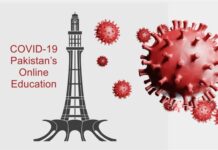
Financial and emotional health can be achieved through quality education.
Knowledge
One thing that separates man from the other creations of god is knowledge, the basis of which is formal and informal learning. These are the basis of all knowledge. The amount of knowledge is vast, and learning can never be complete, even though it is life-long. The importance of quality education to a nation cannot be overstated. It is the backbone. It is for this reason the education system in Pakistan needs to be examined and changed. After 70 years of independence Pakistan still has no uniform system of education throughout the country.
Three Types of Education
There are three streams of education systems at the moment.
- Schools where the language of instruction is English, for elitists.
- Schools where the language of instruction is Urdu, for the middle and lower classes.
- Madrassa schools, for those who cannot or do not want to finance education for their children.
There is no integration among these three streams, rather the interaction is negative, and each discredits the others. This divides the nation into three groups looking for education in three completely different directions. This negative relationship among the systems divides the nation further and gives little hope for human resources to be developed in the country.
English Medium Schools
Upper and middle class families will only send their children to the English medium schools. These schools are run on their own terms, charging enormous fees, but are the choice of the educated classes. They pose some difficulties for graduates following completion of their secondary schooling. Many of them have very little chance of gaining entry into tertiary institutions in Pakistan. They are often not able to meet the requirements for entry into medical or engineering colleges despite their Cambridge distinction level of English. They tend to leave Pakistan to find better opportunities overseas. Once they spend five to six years in the best universities overseas, they are offered well-paying jobs overseas they don’t return to Pakistan. Pakistan loses some of their best students early in their lives.
Urdu Medium Schools
Urdu schools are somewhat different. All Pakistan public schools teach in Urdu, and English isn’t part of the curriculum until late secondary levels. As a result of this the students do not master either English or Urdu. English becomes a nightmare experience for many. The system of teaching in these schools is rote learning. Students memorise information rather than actually understanding it. In these schools the facilities are poor. There is a lack of discipline and many untrained teachers. As a result of this, students who graduate are not capable of competing internationally. They are weaker from a conceptual point of view, poorly disciplined and even though equally intelligent, they lack self-confidence.
Madrassa Schools
The education in madrassa schools focuses solely on the religious perspective. These graduates tend to have a narrow world view and don’t gain the education that could sustain either themselves of their families, or make a contribution to the economy.
Why has this happened?
One reason for the lack of budget allocation for education lies in the 18th amendment. The 18th amendment completely absolved the responsibility of the federal government for education. It is controlled by provincial governments. One example is Balochistan, where there is insufficient or uniform infrastructure or resources to handle education. This is the same for many of the provinces.
Most of the brightest Pakistani children who excel tend to look for careers in engineering, or becoming a doctor. Other options available include CSS, or the armed forces. If this is not possible, they look at law, journalism or teaching. In Pakistan society much respect is based on salary, or ability to evade the law, or even harming others. The law, judiciary, armed forces and police become popular choices because of the associated social status. The same level of status needs to be afforded to those in the education profession.
Those from English medium schools are disadvantage in the medical field due to the unfair system of equivalence, but Urdu medium students have a similar disadvantage with jobs in the private sector.
English Language
A further issue is the English language. We have not totally accepted English. It is a language spoken globally and also used in most global communication, so it needs to be taught to our children. Even a giant such as China is not finding it easy to teach English to all. Pakistan doesn’t seem to realise that this lack of English leads to global isolation. Our religious scholars also need to accept English as they are some of the important people in our society. The learning of English can be a source of development and increased prosperity for our nation.
‘Youth Bulge’
Pakistan has a ‘youth bulge’, and we need to channel their energy and use their potential. If not, they can become one of Pakistan’s biggest problems. If the youth are trained and educated well they can contribute to society and productivity. They could move abroad and bring in foreign exchange.
Almost 50% of our population is young. One way to increase their employment opportunities is through the creation of polytechnic institutions. Jobs such as skilled craftsmen and workers would increase in availability. Following a basic education, students could attend these institutions, which need to be attached to industries.
Education and the Future
Education is one of the foundation stones of a nation. How can we improve the quality of education in our country? Our education needs to be free, universal and compulsory. This would give the younger generation a brighter future, and equal opportunities. They will not be forced into specific professions because of the system of financial issues.
Despite 70 years of independence, education is still a primary issue in this country. We must leave class discrimination and sectarian feuds behind us and concentrate on a good, solid education policy. The policy should be based on national consensus, then followed religiously and have protection under the constitution.
If we start now, we could have these changes in place for the next generation. Pakistan’s education system could be transformed into a uniform system.




 EducateBox is your education news, past papers, model papers, interesting articles website. We provide you with the latest breaking news straight from the education industry. We are your all-access pass to all the A-List tutorials around the globe.
EducateBox is your education news, past papers, model papers, interesting articles website. We provide you with the latest breaking news straight from the education industry. We are your all-access pass to all the A-List tutorials around the globe.
After writing the Education is one of the foundation stones of a nation in above article you have mentioned the https://educatebox.com/how-can-improve-the-quality-of-education-in-our-country/ for How can we improve the quality of education in our country. So is the link work for Primary education as well for guidance?